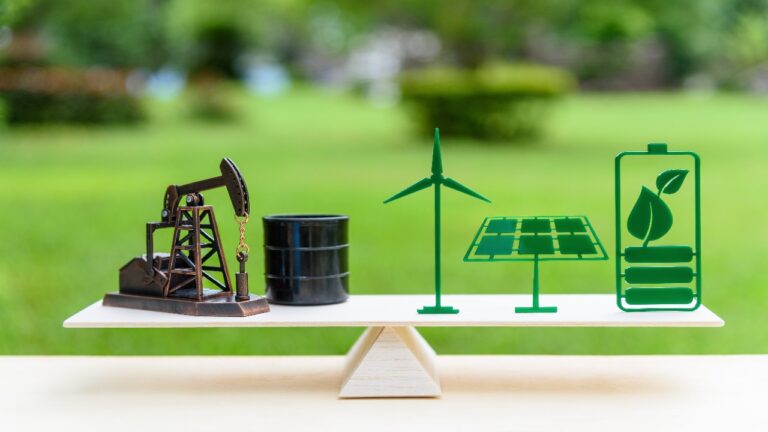Power prices are expected to soar under new tax cut and spending law
In states without policies to drive renewable energy, power prices could surge as federal tax incentives for clean energy disappear, according to Energy Innovation, a think tank.
Current Access Level “I” – ID Only: CUID holders, alumni, and approved guests only
Group Chief Economist at BP
For the past 67 years, BP has published its Annual Statistical Review of World Energy, a consolidated data set that spans primary energy, countries, and regions. On a new episode of Columbia Energy Exchange, host Jason Bordoff sits down with Spencer Dale, who serves as Group Chief Economist at BP, to discuss the key themes and insights from the recently released 2018 report. Prior to joining BP in 2014, Spencer was with the Bank of England, where he was Chief Economist and a Member of the Monetary Policy Committee.
One of Spencer’s key takeaways from the report was that while last year (2017) was an exceptional year for renewables, little progress has been made to reduce coal consumption. In fact, coal continues to demand 38% of the total fuel share mix, the same percentage as 30 years go. As a result, Spencer highlights the importance of targeting efficiencies in the power sector to reduce the consumption of high-carbon energy sources. Spencer and Jason also discussed interesting trends such as the fall in energy intensity and the pivotal roles that China and India will continue to play in the global energy market in the years ahead.
Other topics discussed include Spencer’s thoughts on peak oil demand and what peak oil means for oil majors like BP; the role that EV’s will play in the transportation sector; and the role of sources like natural gas and nuclear power in the energy transition.
Many parts of the US have experienced brutal, deadly heat in recent weeks—and there’s plenty of summer left. Intense rainfall, made more likely by warming, dropped more than...

Artificial intelligence is transforming our world—and the energy sector. Earlier this year, the International Energy Agency (IEA) released a comprehensive report examining both AI’s projected energy demands and...

The global energy landscape is shifting right now. Geopolitical tensions in the Middle East, debates about peak oil demand, and waning support for climate action in some parts...

Just two days after President Trump deployed America’s military to attack Iranian nuclear development sites, a shaky ceasefire between Israel and Iran brokered by President Trump emerged. So...

President Donald Trump's first official foreign policy trip, as in his first term, was to Saudi Arabia earlier this month, with additional stops in Qatar and the United Arab Emirates.

PetroStates and ElectroStates clash as fossil fuels and clean energy reshape global power, strategy, and alliances.

The report presents insights on Oklahoma’s economic resilience strategies, relevant policies, and proposed program enhancements based on a set of interviews with key stakeholders.
This analysis provides an overview of changes in production and economic outcomes in US oil and gas regions, grouping them by recent trends and examining their impact on local economies.
